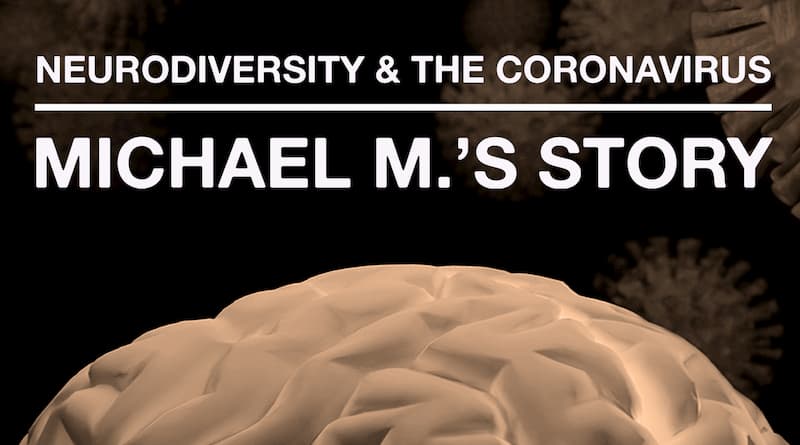
A Student’s Journey Through the Math Learning Disorder Dyscalculia
By Alexandra Wright
Math, like many other subjects, has potential to be either the strong-suit or weak-point of many students’ curriculum. The reasons for each student’s relationship with it could be endless. Some may simply enjoy math while others may not, regardless of skill. For others, math may be their comfort zone. The nature of numbers does not change, and those who appreciate that recognize math as a black and white concept. Others, like myself, can find the concept of math completely mind boggling. I can wrap my head around the notion that numbers are concrete, but then why does every single question look completely different?
One reason I have heard for some people’s lack of math ability is the way our brain is wired. Consideration of factors such as environmental, and developmental differences aside, genetics arguably play a key role in much of our brain’s functioning and development. I do believe that there is some genetic basis in regards to our ability to reason logically and therefor excel at math. However, if that is the case, how is it that my Grandmother taught math to high school students for eighteen years, my Mother graduated from a top tech university with a mechanical engineering degree and was also a math teacher, and my Brother just recently graduated from a state university with a petroleum engineering degree. It doesn’t “add” up, if you will.
I could not understand why, with all the resources available to me, I just could not seem to grasp the (math) concepts. I felt as if I was a disappointment to my family, who clearly had different brains than I did.
My seeming inability to do math was as confusing to my family as it was to me. Despite the confusion, my family dedicated their time, effort, and money to ensure my success in math courses. If they weren’t tutoring me themselves after their long days, I was provided a hired tutor. In every way possible I was blessed with constant support from my family. Therefore, it was difficult for me to consistently bring home poor grades from math quizzes or tests. I could not understand why, with all the resources available to me, I just could not seem to grasp the concepts. I felt as if I was a disappointment to my family, who clearly had different brains than I did.
Once I went to college, math proved to be more difficult to me than ever. The class size grew exponentially, and the abundance of resources I had available to me were scarce as opposed to high school. Even though my university provides many resources for students, it simply is not the same as one-on-one time with teachers or being able to be close to your family for support. Tutors were expensive to come by in college, I found. Other students offered tutoring services by the hour, at a much cheaper rate than the few tutoring company services I knew of in my area. But even then, I needed many more hours than what my peers were able to offer and that I was able to finance. At home, I was able to bring my tutoring packets to my family members who would tutor me additionally- of course free of charge. It was only after weekly phone calls to my mother crying about an ‘F’ I had received on a test I had dedicated hours to studying for that we realized it was time to dig deeper into the reasoning of “I’m not good at math”.
When I went home for break, my mom had arranged for me to see a school psychologist. I thought it to be a little odd because I sincerely did not believe I had a learning disability. I knew I was bad at math, but I was successful in all of my other curriculum. I had graduated from high school with a 3.75 and was accepted into an accredited state university. Trusting my mothers’ judgement, I went to the school psychologist anyways terrified that I would learn something about myself at the age of 20 that would deem me “disabled”. After a series of tests and evaluations, my school psychologist had explained to me that I exhibit mild symptoms of dyscalculia.
Essentially, dyscalculia can be described as “Dyslexia of numbers”. Due to my mild symptoms, basic arithmetic is not something I struggle with, as 2+2 or even basic algebra does not pose threat or cause me anxiety. Rather, my dyscalculia stems from my difficulty to follow sequences of steps with numbers, or use and understand steps in order to complete a lengthy math problem. As soon as a math problem involves too many numbers, words, or steps, the whole problem gets jumbled in my head. The anxiety that this produces causes me to not only blank out in the middle of the problem, but also leads to me abandoning the problem all together.
As a 20-year old college student, it was difficult for me to grasp that all of my life I have had this learning disability without even knowing it. On the other hand, it was comforting to learn the reason behind my years of constant stress and difficulty in math.
Learning of this was both unsettling and comforting at the same time. As a 20-year old college student, it was difficult for me to grasp that all of my life I have had this learning disability without even knowing it. On the other hand, it was comforting to learn the reason behind my years of constant stress and difficulty in math. From then, I found more solace with my difficulties in math. Understanding my disability, and researching ways to overcome certain challenges related to it, proved to be a vast help in not only math courses but all of my curriculum. Aware of my challenges, I was able to consult my university and be provided help by the Student Disabilities Resource Center (SDRC). The SDRC accommodates each individual relative to their needs. For my needs, I was provided:
- Accommodated testing, where I could take my math tests at the SDRC and receive extra time to do so, ensuring minimal distraction and ample time for my brain to work out the problems.
- Alternative text services, so that math problems were printed on multiple colored sheets of paper, rather than many problems on one black and white sheet, making the problems much more easy to read and not jumble together.
- Note taking services were also provided so that a student could volunteer to send me weekly lecture notes, allowing me to pay full attention to the lecture without having to break concentration to write notes down.
- A common study space is available at the SDRC for a quiet and private place to study or read, aside from the often packed university libraries.
Math was no longer such a scary, unmanageable concept to me. With the appropriate help and time management skills taught to me upon learning of my disorder, I was able to incorporate math into my studies without abandoning it altogether as I had planned to do. I no longer felt ashamed and confused by my inability to do math, but rather prideful in the accomplishments I made despite the challenges I face.
A FEW ADDITIONAL FACTS ABOUT DYSCALCULIA:
- Aboutdyscalculia.org estimates that 3-6% or one in twenty individuals will be affected by Developmental Dyscalculia. It is also noted that while this estimated percentage is similar to that of Dyslexia, Dyscalculia is largely understudied and under-resourced in comparison. Furthermore, the article observed that unlike many other primary learning disorders, Dyscalculia seemingly affects males and females at the same rate. With this all in consideration, I feel compelled to share my unique story- in hopes of reaching those who may be unknowingly affected by Dyscalculia.
- In a Celebrity Spotlight conducted by Understood.Org, “Superstar Cher Triumphs with Dyslexia and Dyscalculia”, the pop idol divulged her personal challenges relating to her learning disorders. Cher wrote in her autobiography, The First Time, “I couldn’t read quickly enough to get all my homework done and for me, math was like trying to understand Sanskrit”. The article continues to explain how the diagnosis of her son with dyslexia is what revealed to Cher her own diagnoses of her learning disabilities. After speaking with her sons’ doctor, she reported the feeling “Ohhh…Now I understood everything, why I had so much trouble with school. It all fit together,” very similar to how I felt when I learned of my dyscalculia. Cher now utilizes her awareness of her learning disabilities to advocate for those who struggle with similar challenges of learning and attention issues.
- Even when the official term of dyscalculia was unknown to the world, research points to evidence that famous scientists/inventors such as Ben Franklin, and Thomas Edison struggled with math to a significant degree. It is noted that Thomas Edison, the inventor of the lightbulb, had to hire a mathematician to do all of his calculations for him!
Alexandra Wright is currently a Junior at Florida State University majoring in Psychology. She was born and raised in South Florida, and attended Cardinal Gibbons High School. Alexandra’s interests include Forensic Psychology, Criminal and Abnormal Behavior, and neurodiversity of all kinds.




